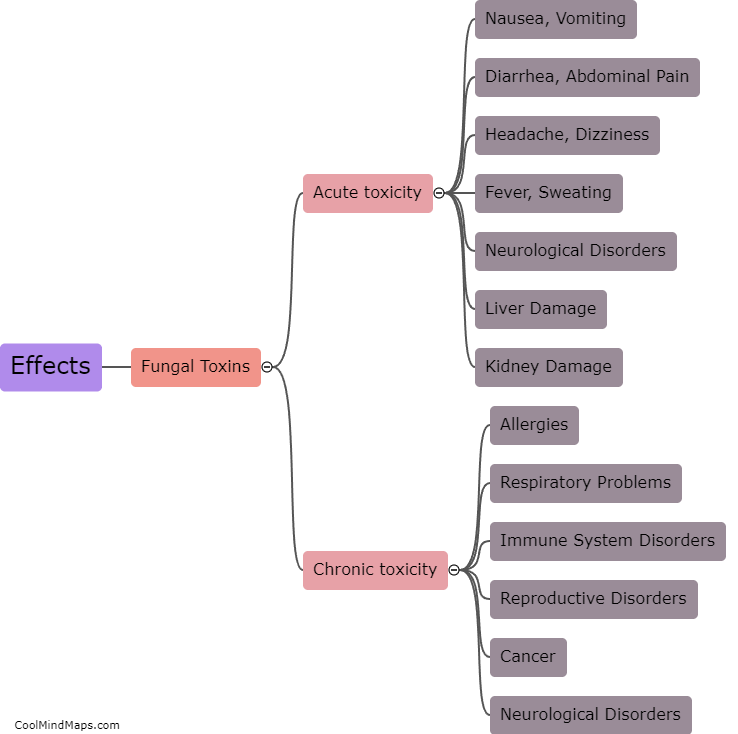What are the effects of fungal toxins on human health?
Fungal toxins, also known as mycotoxins, are natural compounds produced by certain types of fungi. When humans are exposed to these toxins through ingestion, inhalation, or skin contact, they can have various detrimental effects on health. Some fungal toxins are known to be carcinogenic, meaning they can cause cancer in humans. Others can lead to acute or chronic diseases, including respiratory problems, liver damage, kidney damage, gastrointestinal issues, and immune system dysfunction. Additionally, some mycotoxins can have neurotoxic effects, affecting the central nervous system and causing symptoms such as headaches, dizziness, and cognitive impairment. Overall, exposure to fungal toxins poses a significant risk to human health, and it is important to limit exposure and ensure proper prevention and mitigation measures are in place to reduce the associated risks.

This mind map was published on 19 December 2023 and has been viewed 86 times.











